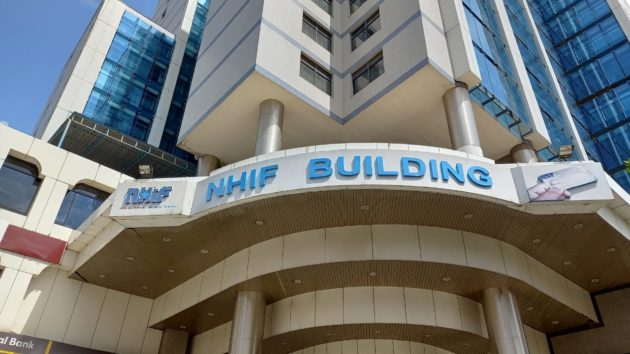When Citizen TV arrives at the Mother and Child Hospital in Eastleigh, we find hospital staff pinning a notice on the notice board.
On closer inspection, it is evident that the Rural Private Hospitals Association of Kenya have made good their threat to cease offering healthcare services to NHIF beneficiaries, opting to treat them only on a cash basis.
The hospital says this move has been necessitated by NHIFs failure to settle pending claims.
“The notice is to show that we will have no services rendered to outpatient and inpatient customers, including specialised services like eye care, dialysis and cancer care will be requiring customers to pay upfront in cash for consultation, procedures and lab fees,” says Mathew Mwenda, the hospital’s claims officer.
“Of course, we will offer emergency services to those who need it.”
Dr Tim Theuri, the CEO of the Kenya Health Foundation says “We are not able to continue with the services that we were giving Kenyans, it’s not that we are not willing, we are just not able to.”
“Most of the providers in healthcare are SMEs and they cannot sustain prolonged credit periods. If you go outside the 90-days period that the NHIF contract provides then we begin to have problems bc people are not able to,” he adds.
The situation is the same with thousands of other providers in the c country, who lament that the financial constraints imposed upon their facilities by the delay by NHIF in paying the claims have driven many of their businesses to the brink of collapse, forcing them to arrive at the tough decision, which they say is their only option.
Private facilities accuse the national hospital insurance fund of frustrating both the hospitals and patients seeking healthcare, and dishonesty, where NHIF issues pre-authorisation for a procedure then declines to settle the claim.
A situation they say, is affecting the trust upon which the entire healthcare system is founded.
“It didn’t just get slow in the matter of payment, but approvals too. Before a patient gets a procedure approved or a claim paid it takes time,” says Mwenda.
The Kenya Health Federation has warned unless urgent intervention to remedy the situation is done, the provider networks will be forced to require Kenyans to undertake to be financially liable when signing informed consent, adopt an indemnity model where Kenyans will have to pay then providers fill in the standard claims reimbursement forms, require health seekers to deposit cash guarantees or entirely adopt a cAsh only model, which they warn will be a zero-sum game towards financial protection of mwananchi.
“The last few months have been interesting for us. We have engaged with NHIF around the provider space and money owed to providers and that’s just a small portion of the problem,” says Dr Theuri.
“What providers say is that there’s not enough money circulating within the sector for them to offer quality health care. The constitution says every Kenyan has a right to the highest attainable standards of care and if you don’t recourse then they are not able to give good care.”



